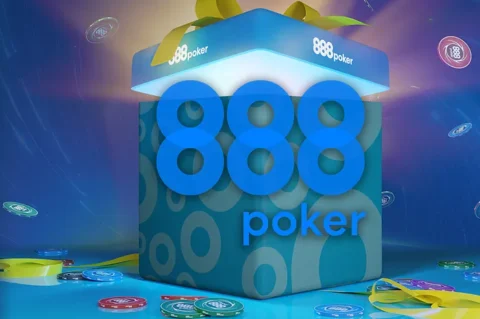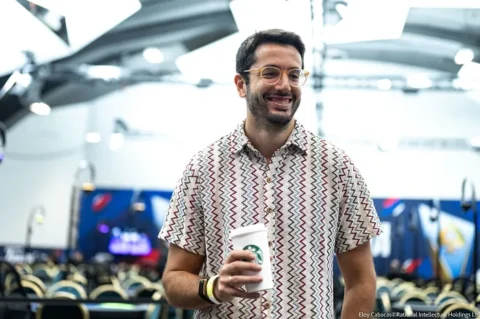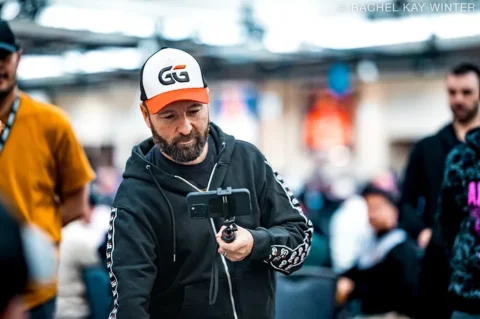CNC Poker has quickly gained traction in the poker training space, offering a unique combination of personalized coaching and a strong community-driven approach. To get a closer look at the man behind CNC Poker, I sat down with company founder, Raymond Norton, to discuss his background, the platform’s vision, and how CNC Poker stands out from other training sites.
Over the course of our interview, we discuss Raymond’s poker history and how he got involved in the game as a player before moving on to his history working with bitB Staking. Afterwards, we discuss CNC Poker’s growth and unique approach to poker coaching, including how it navigates the challenges of managing a diverse audience, the process of selecting coaches, and the importance of a holistic approach to poker. In addition, we dive a little deeper to discuss CNC Poker’s features and benefits.
Raymond Norton Interview: Summarized Transcript
Tell us a bit about your journey into poker. How did you first get involved in the game?
I used to work full-time as an accountant and thought that that was going to be the path I’d go down, but I hated the job. At some point, I came across a YouTube video about grinding Sit N Go tournaments where I learned that you “could make $400-$500 a day if you were good at math”. Alarm bells started going off in my head saying “that could be interesting”, so I began getting more into it.
Back in the day there used to be something called the Blonde Poker forum in the UK and that was very popular. I got active and made some friends there. Soon after that, I got into the Sit N Go grind playing 45-player tournaments, then 180-player tournaments. This was in 2015; bitB staking started around them, so I joined them as I knew Pads (Patrick Leonard) from the forums. I played for them for a few years, and I was an OK reg.; nothing spectacular. I didn’t work as hard as I could’ve, but I did alright.
Then, an opportunity came about to work for bitB and I found myself enjoying that more than playing poker. Eventually I ended up working for them full-time. By the end of my tenure there, when the staking group disbanded in 2020, I was basically running the company. Directly after that breakup, CNC Poker was formed.
Why did you believe that staking was the right way to go for you as a player?
In 2010, the games were great and you could basically just win every month so long as you put in enough volume. For quite a while I never even had a losing month. After a few years, the game got tougher and things didn’t really go as well for me. Around the time bitB started, things were going so bad that I wasn’t just broke, but actually in a fair bit of debt. So, staking was really the only way for me to keep playing.
bitB actually evolved over time, along with the game itself. From a purely business standpoint, it became clear that many good guys just shouldn’t be staked. You had to really fit a certain mold for it to make sense, have a particular type of discipline and be generating enough of a profit for it to be worthwhile for bitB to stake you.
The fact of the matter is that staking is really an individual decision. Often if you’re good enough to be staked nowadays, you’re good enough to play on your own without the need to be staked.
When did you realize that coaching and player development was something you wanted to focus on?
I often get asked if I miss playing poker for a living. Honestly, my answer is “no” because I just love the other (business) side of poker more than the playing side. With playing, it still felt like work to me, whereas running the business aspects of a poker site just feels fun. When I was at bitB I kind of had this epiphany that even when I could be working for many hours — 60-70-hour weeks — I’d still have energy and enjoy it because I was having fun, whereas playing poker almost felt just like the grind of being an accountant to me.
What inspired you to start CNC Poker, and how did your experience at bitB Staking influence your vision and ability to build out the company?
When bitB disbanded, I just asked myself what I could keep doing that would help me maintain that feeling of loving what I do. It wouldn’t be staking; that’s something else entirely. But I loved the communication side of things. I love talking to players and helping them figure things out.
Through bitB, I had developed a large network of players who I believed I could help with coaching and answering other sorts of questions, so basically that’s how CNC Poker became a reality.
The transition was pretty quick — about 3 months in between bitB disbanding until CNC Poker launched. That’s not about 4 years ago; October 2020 it happened.

CNC Poker focuses on live group coaching, which is pretty unique. Why that over more traditional pre-recorded courses?
My goal was to try and create something that was genuinely different versus other poker training sites. Feedback I had been getting from many people was that they paid a monthly fee to a site but basically had stopped using the services… and nonetheless still kept paying for membership. I wanted to create something where, by contrast, you pay for what you use; full stop.
You only need to pay for what you actually want; once you’re a member of CNC Poker, there’s no further payment unless you specifically initiate with a desire to acquire additional lessons and knowledge, etc.
As a matter of fact, CNC Poker has changed a good bit over the last four years. It used to be that we’d require members to listen/watch the live sessions in real time (i.e., that they weren’t available after that), but very clearly we realized that that wouldn’t work for scheduling and time zone reasons and wouldn’t be fair to many members. So we quickly switched to a “lifetime membership” type of model, giving people the ability to study when they want and are available to buckle down for the group sessions on their own time.
How do you guys handle coaching players from different backgrounds—some casual, some more serious grinders?
The overwhelming majority of our members have a pretty solid basic level of poker knowledge and understanding. They’re mid- to high-stakes guys. Often, when an issue like that comes up and someone asks a question during a live session, the instructor/coach will say “we’ll get to that privately after the session”, so as not to disturb the lesson flow. We fully rust our coaches’ judgement on matters such as these.
So, essentially, just like in university or something. If, however, the question/point being made is more generic in nature, the instructor will realize this and integrate the answer into the lesson itself for the sake of all the students.
You’ve got a solid team of coaches at CNC Poker, including some well-known pros like Stoyan Obreshkov and Ben Heath. What’s your process for picking coaches, and how do you ensure that each one brings something different to the table?
To a large degree, the most successful coaches on our site are the ones who put in the most work and effort. They all have lots to offer, and we do have a discerning selection process whereby we obtain feedback from our members on what they’d like to see and learn from coaches.
At the end of the day, however, there’s so much to learn and teach in poker. So many different styles of instruction, and of course students have different areas of weakness. There’s never a situation where we’d automatically say “no” to any coach who is interested in working with us and brings some unique knowledge or perspective to the table. At the very least, we give new coaches the opportunity to have a trial session and get feedback.

CNC Poker places a strong emphasis on mental and physical well-being, with coaches like Jon Prince, Alan Longo, and Valeria Marin specializing in areas like mindset and nutrition. Why do you believe this holistic approach is important for poker players?
There’s a lot more awareness of living a healthy lifestyle nowadays. Not just with optimally playing poker, but in life in general; healthy habits are good for you. And of course there’s just a lot of mental stress that comes with playing this game and grinding for a living. It’s critical to know how to effectively deal with those stresses. Just like professional athletes have coaches in this regard, we find it important for poker players to get this type of coaching.
Who would you say CNC Poker is ideally suited for and who should NOT be utilizing CNC Poker training?
Guys who have more modest bankroll of a few hundred dollars; it simply just doesn’t make sense for them to spend the money on a program like hours. Even while they’d get high quality coaching, from a financial perspective it just doesn’t make sense. Same goes for guys who really just enjoy the game and are happy playing recreationally. It just doesn’t make sense to pay for a program that you’re not going to try and make optimal use out of.
Once you’ve crossed those barriers, of having full intention to study hard and make the most from a poker training program, and have also managed to amass yourself a bankroll of decent size so that you can play in higher stakes cash games and tournaments, at that point it makes a lot more sense to consider enrolling in CNC Poker.
Can you outline the pricing structures and plans that you offer at CNC Poker?
Our Global platform costs $200 to enroll in for a 3-year membership, while our Brazil platform costs $120 for a 3-year membership. Obviously one difference between the two is language of instruction, with all materials and coaches on each platform utilizing the target language (English/Portuguese).
You get a bunch of content plus unlimited access to all the services we offer and our Discord server, to speak with other members and coaches.
Once you’ve watched some content and have tried out videos produced from a variety of different coaches, you can then decide which coach is right for you and pursue further instruction. That costs separately from $50-$750 per session depending on the coach and length of session.
Conclusion
Raymond Norton and CNC Poker are bringing something special to the poker training scene, with a focus on live group coaching, community, and customization. With a roster of accomplished coaches and a unique mix of live group sessions and personal coaching, CNC Poker is carving out its niche in the competitive world of poker education. So long as you’re serious about improving your game, CNC Poker has something unique to offer you in terms of its approach to instruction. So, if you’re looking to elevate your game, this might just be the place to start.
Those with further questions for Raymond about CNC Poker are welcome to reach out to him by email raymondnorton@cncpoker.com or to sign up for a (basic level) free CNC Poker membership and then speak with him on their public Discord server.















